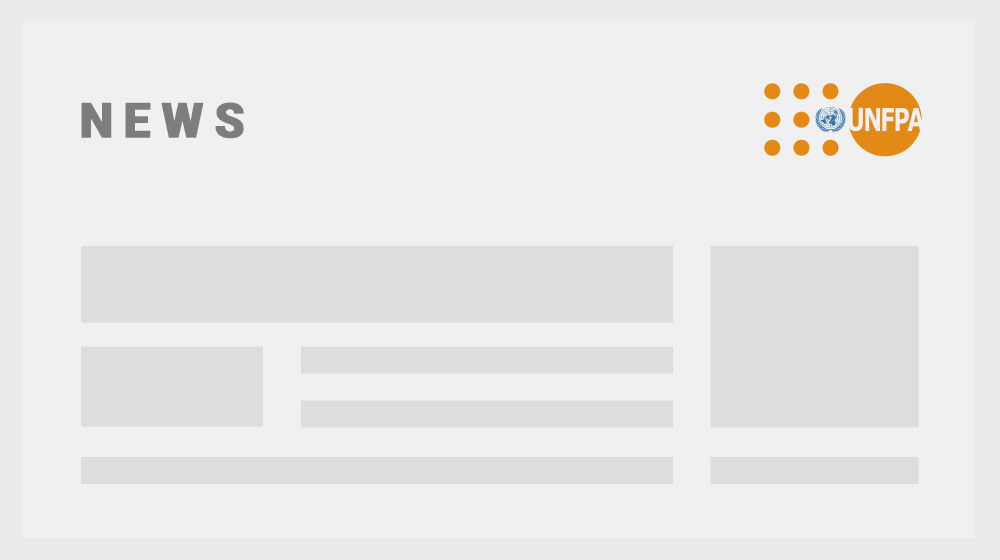
Life inside a Gaza hospital
For pregnant women and infants, a fight to survive amid waning resources
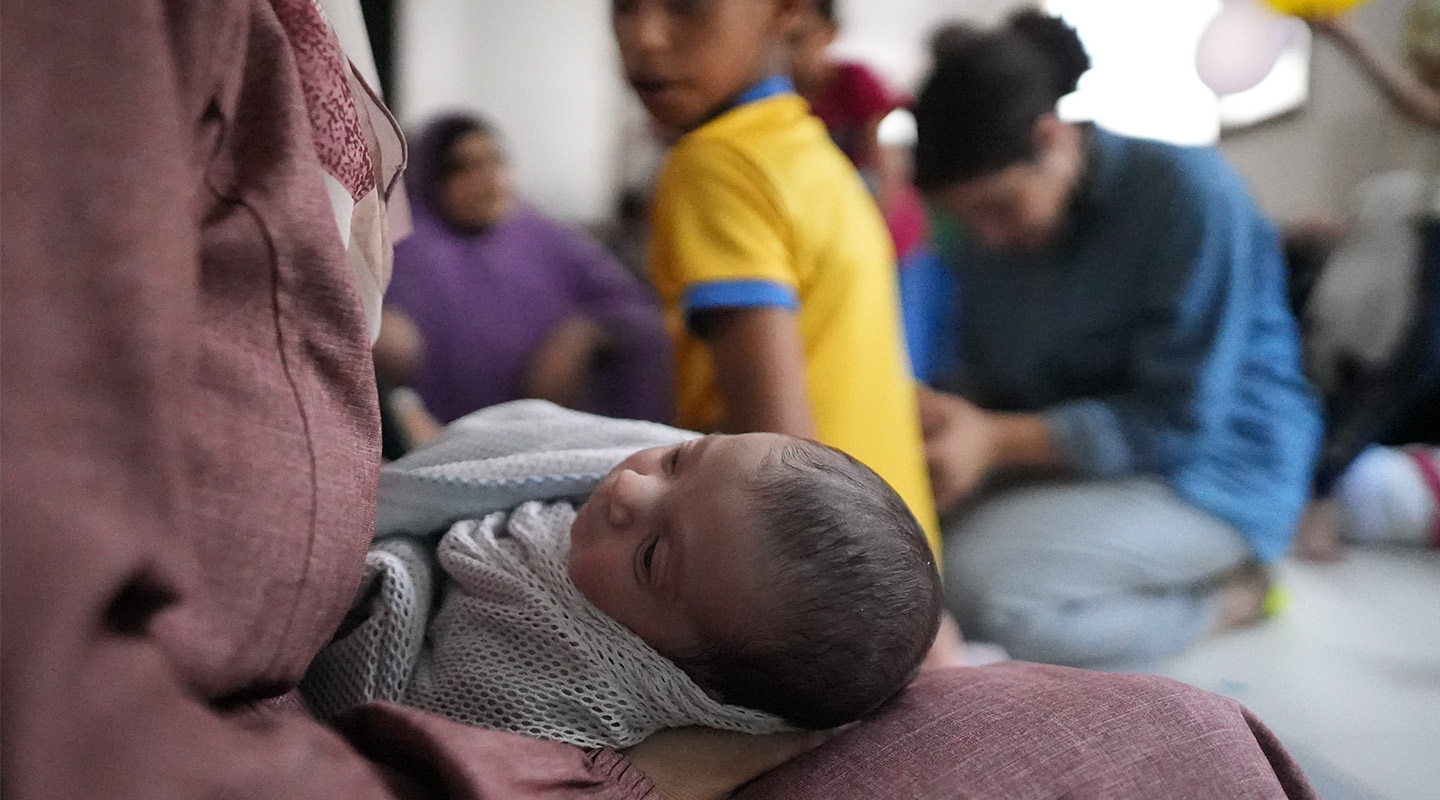
“We lack basic necessities for life,” says midwife Yasmine Ahmed, describing a severe shortage of supplies and medicines for pregnant women and newborns in Gaza. The conditions for health-care workers, she says, are “catastrophic.”
Here, recent photos from inside the Al Shifa Hospital in Gaza City – where thousands of people are seeking shelter and care – capture the crisis. Amid the flow of wounded people, the hospital has since shifted its maternity ward to Al Hilo Hospital, a facility that has now reportedly been struck by shelling.
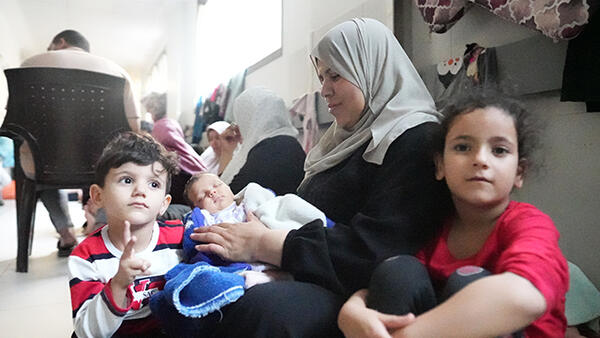
More than 1.4 million people are internally displaced in Gaza, with hundreds of thousands crammed into overcrowded hospitals and shelters.
The siege imposed by Israel following the Hamas attacks on Israeli towns and civilians on 7 October cut off Gaza from aid supplies until 21 October, when the first aid trucks were allowed to enter. But much more aid is needed to meet the humanitarian needs of Gaza’s 2.2 million people, including 50,000 pregnant women. Around 5,500 women are due to give birth in the coming month.
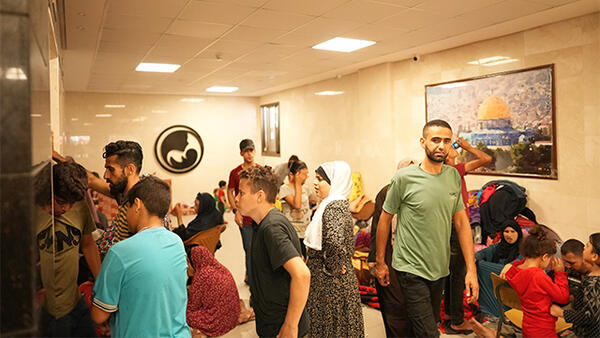
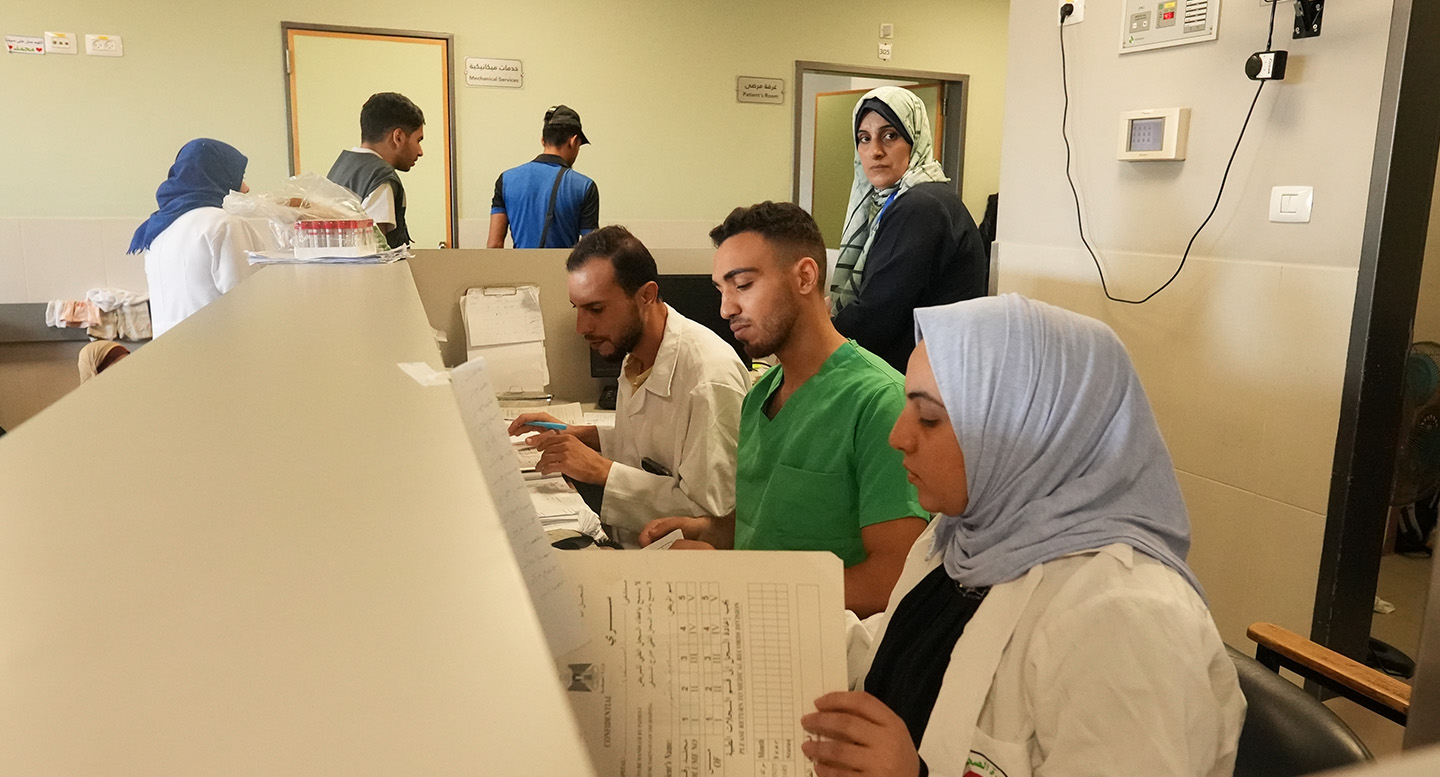
The medical system is in chaos, as health workers, hospitals and clinics come under attack or are forced to close due to lack of electricity, supplies and fuel. Patients lie on the floor and in corridors; surgeons operate without anesthesia. More than a third of hospitals and nearly two-thirds of primary-care clinics have shut down due to damage or lack of fuel. Gaza’s only cancer-treatment hospital, the Turkish-Palestinian Friendship Hospital, has suspended operations.
“The simple requirements of life are not available,” says Dr. Nasser Bulbul, head of neonatal intensive care at Al Shifa. “We do not know what to do.”
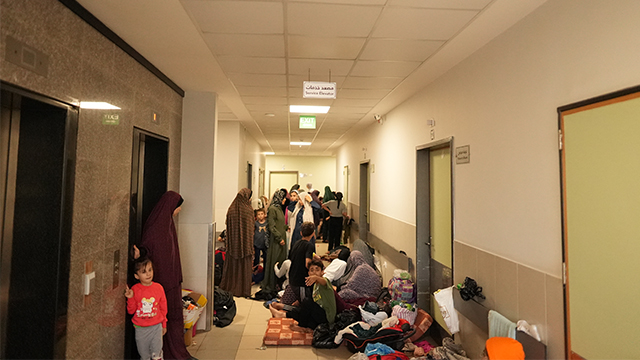
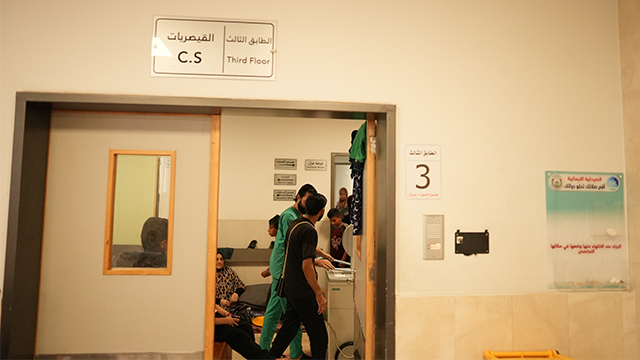
UNFPA is sending life-saving reproductive health medicines and supplies to Egypt for stockpiling and transportation to Gaza when possible. Three thousand dignity kits containing essential hygiene supplies for women and girls are ready for distribution, with additional supplies being prepared.
Among other initiatives, UNFPA has also provided more than 500 vulnerable women in Gaza with cash transfers for their urgent needs, while a UNFPA-supported helpline for Gaza and the West Bank is staffed with doctors and counsellors to help young people and others who need assistance.
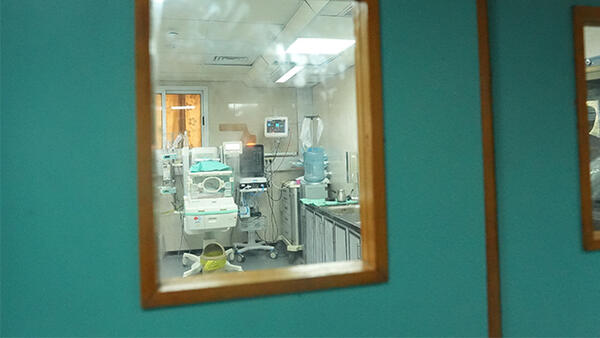
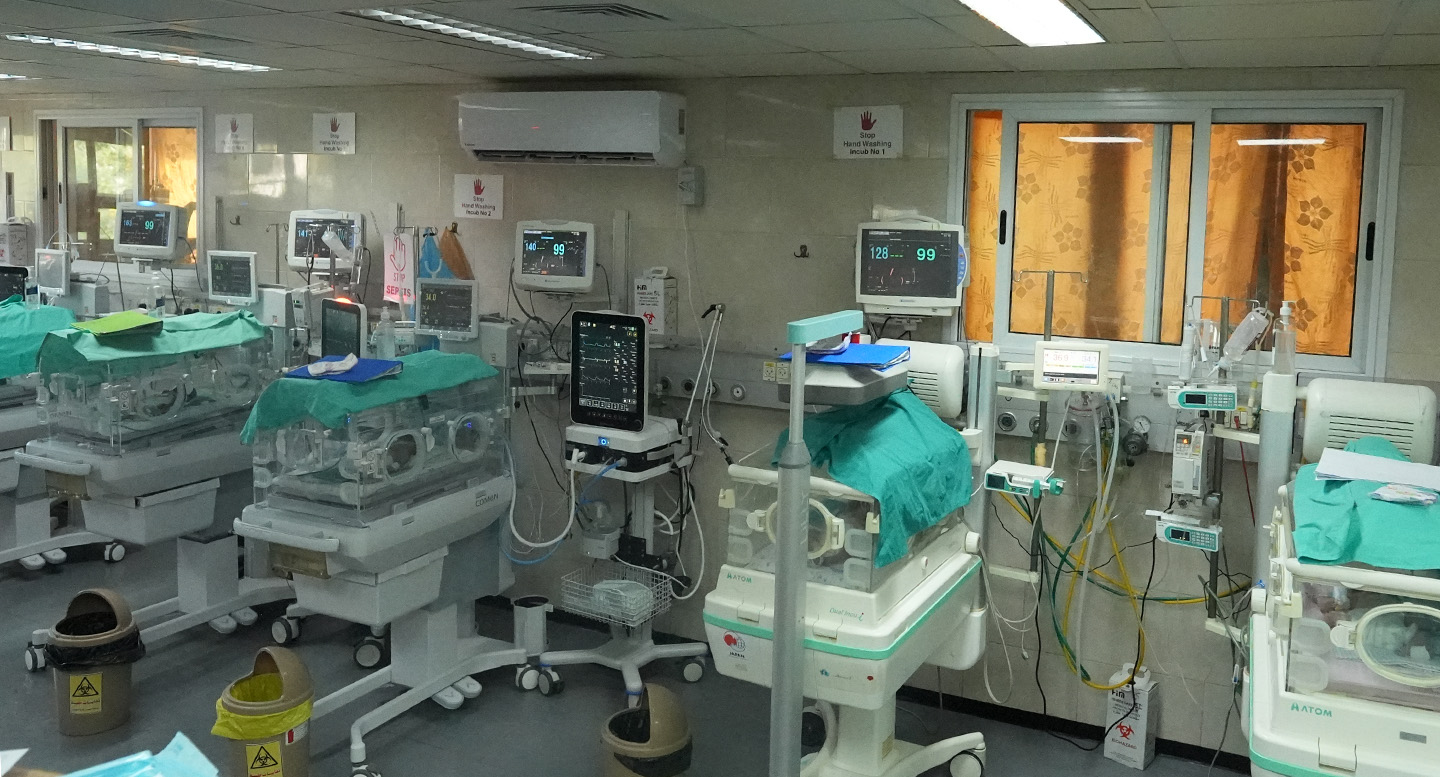
“We are facing a severe shortage of medical supplies, ventilators and essential life-saving medicines,” says Dr. Bulbul, noting that many of the infants he cares for are orphans. “We don’t know the fate of their relatives or have information about their identities.”
He has also seen an increase in premature births as fear and stress take a toll on pregnant women. In one tragic case, he says, “We had to perform a premature delivery of a fetus from the mother’s womb while she was dying.”
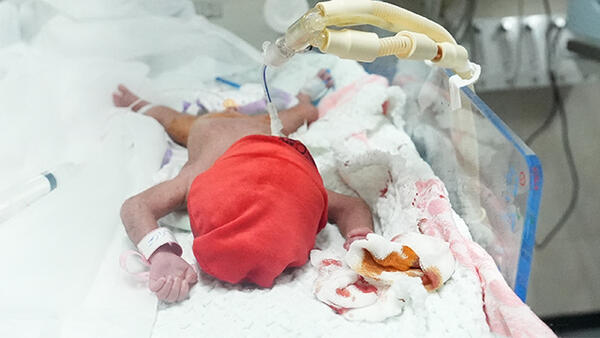
“UNFPA calls for the protection of all civilians and civilian infrastructure in Gaza, including health-care facilities, health workers and patients,” Executive Director Dr. Natalia Kanem has said. “We call for the protection of humanitarian workers, for the unconditional release of all hostages and for international humanitarian law to prevail.”
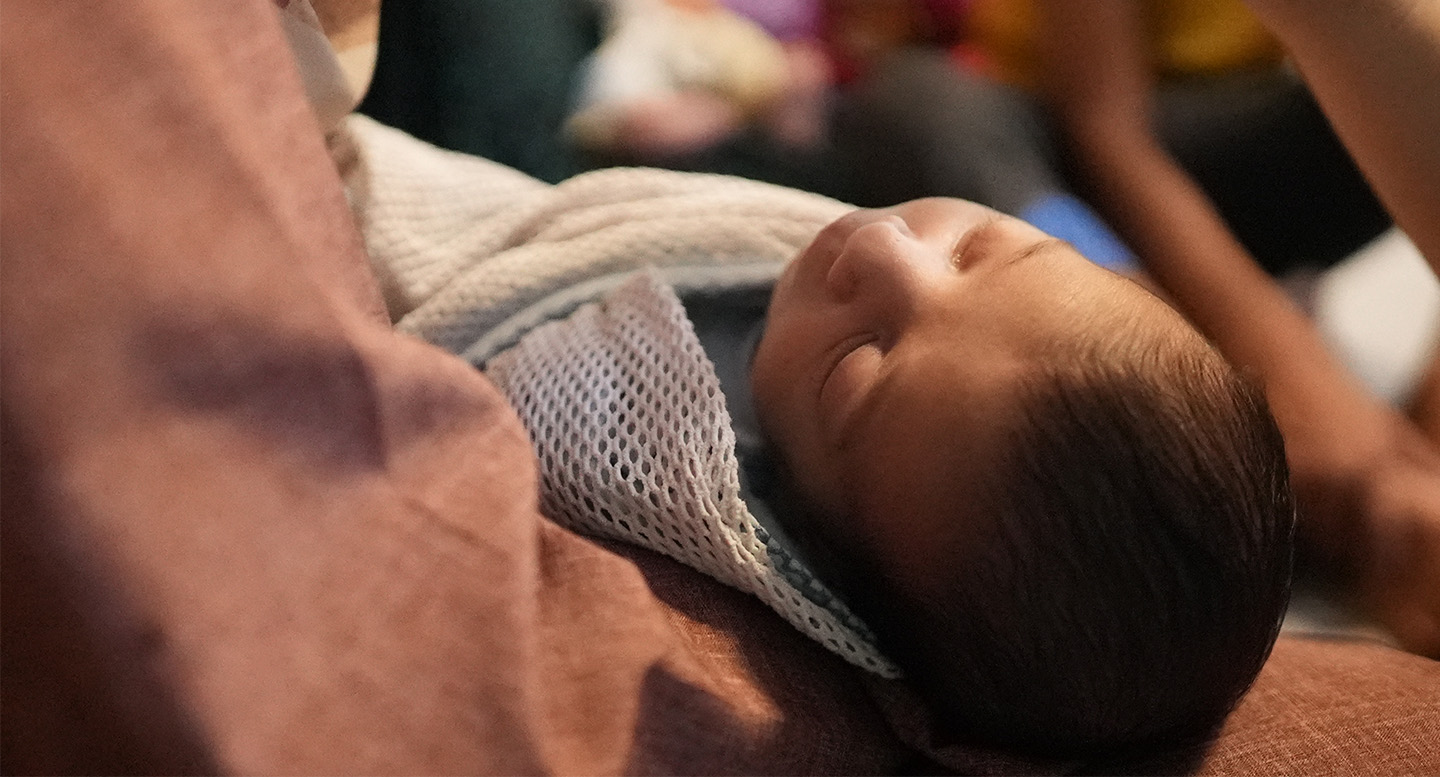
You can learn more and get involved here.
